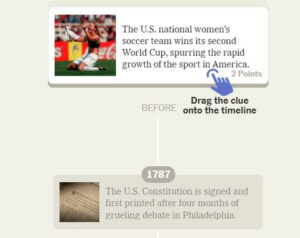Applying The Infinite Game To school Leadership
There are many books on leadership some of them hold school-leaders-essential-takeaways/” data-type=”post” data-id=”14031″>valuable lessons for school leaders. I find the work of Simon Sinek to be really accessible and usable. I used his book Start With Why when I developed the school of Joy Approach. In his fifth book, The Infinite Game, Simon Sinek challenges us to rethink how we approach our work, our goals, and our relationships. He argues that there are two types of games: finite and infinite. Finite games have fixed rules, players, and outcomes, such as chess, football, or war. Infinite games have no clear rules, players, or end, which makes the theory perfect for applying to education. The goal of finite games is to win, while the goal of infinite games is to keep playing.
Sinek suggests that many of the problems we face in our organisations and societies are caused by playing finite games with a finite mindset. We focus on short-term wins, metrics, and comparisons, rather than long-term vision, purpose, and impact. We compete with others, rather than cooperate with them. We resist change, rather than embrace it. We lose sight of why we do what we do, and who we do it for. The best Ofsted grade, the most comprehensive policies, and the highest progress 8 data can become more important than doing what is right for our pupils.
As school leaders, we have a responsibility to play the infinite game of education. We have to create a learning environment that inspires and empowers our students, staff, and community to achieve their full potential and contribute to the common good – we probably went into teaching because we know our “Why”, and what our Just Cause is. We have to lead with an infinite mindset that transcends the many and seemingly increasing finite constraints and challenges we face. How can we do that? Here are some of the key points from Sinek’s book that can help us.
Adopt an Infinite Mindset
An infinite mindset is a way of thinking that focuses on theschool-leadership-developing-a-vision-for-your-school/” data-type=”post” data-id=”14636″> long-term vision and purpose of our work, rather than the short-term goals and metrics. It is based on the belief that we are part of something bigger than ourselves, and that our actions have lasting consequences. An infinite mindset helps us to stay motivated, resilient, and adaptable in the face of uncertainty and change.
One of the ways to adopt an infinite mindset is to articulate a “Just Cause” that defines why we do what we do, and who we do it for. A Just Cause is a noble and aspirational statement that describes the positive impact that we want to have on the world. It is not a specific goal or a mission statement, but a guiding principle that drives our decisions and actions. A Just Cause should be:
- For something: It should be positive and inspiring, not negative and reactive.
- Inclusive: It should invite others to join and contribute, not exclude or alienate them.
- Service-oriented: It should benefit others, not ourselves.
- Resilient: It should endure through time and change, not depend on the current situation or trend.
- Idealistic: It should be bold and ambitious, not easy or achievable.
For example, a Just Cause for a school could be “to empower every student to become a lifelong learner and a positive contributor to society”. This statement expresses the vision and purpose of the school, and invites the staff, students, and community to work together for a common good. It also provides a clear direction and a standard for evaluating the school’s performance and progress.
Build Trusting Teams
Trust is the foundation of any successful organization. Trust enables us to collaborate, communicate, and innovate with others. Trust also allows us to feel safe and supported in our work, and to share our ideas, opinions, and feedback without fear of judgment or retaliation. Trust is essential for playing the infinite game, as it helps us to overcome the challenges and uncertainties that we face.
One of the ways to build trust is to create a culture of cooperation, rather than competition, within our teams. Cooperation means that we work together for a shared goal, rather than against each other for individual gain. Cooperation fosters a sense of belonging, mutual respect, and shared responsibility among team members. It also encourages diversity, creativity, and innovation, as team members bring different perspectives, skills, and experiences to the table.
Another way to build trust is to model and encourage behaviours that promote trust, such as honesty, transparency, accountability, and vulnerability. Honesty means that we tell the truth, even when it is hard or uncomfortable. Transparency means that we share information, decisions, and intentions, even when they are not favourable or popular. Accountability means that we take responsibility for our actions, and admit our mistakes, even when they are costly or embarrassing. Vulnerability means that we show our emotions, weaknesses, and doubts, even when they are risky or scary. These behaviours demonstrate our integrity, humility, and courage, and inspire others to trust us.
Learn from Worthy Rivals
In the infinite game, we do not have enemies or competitors, but Worthy Rivals. Worthy Rivals are other players who challenge us to improve and grow. They are not threats or obstacles, but opportunities and catalysts. They are not inferior or superior, but different and valuable. They are not to be feared or hated, but respected and appreciated.
One of the ways to learn from Worthy Rivals is to identify other schools or organizations that excel in areas that we want to improve and study their strategies, practices, and results. We can learn from their successes and failures, and adopt or adapt their best practices to suit our own context and needs. We can also benchmark our performance and progress against theirs, and use them as a reference point to measure our improvement and growth.
Another way to learn from Worthy Rivals is to seek constructive criticism and feedback from our peers, mentors, and experts, and use them as opportunities to learn and improve. We can ask for their honest opinions and suggestions, and listen to them with an open mind and a positive attitude. We can also acknowledge their strengths and achievements, and compliment them for their contributions and insights. In Kent we collaborate a lot with our partner special schools on projects or initiatives that benefit both parties and leverage our combined skills and resources to achieve our common goals.
Practice Existential Flexibility
Existential flexibility is adapting and changing when faced with new situations or opportunities. It is the willingness to experiment, innovate, and take risks, even when they involve uncertainty, ambiguity, or failure. It is the openness to changing our plans, strategies, or even our Just Cause, if we find a better way to serve our students and community. Existential flexibility is crucial for playing the infinite game, as it helps us to stay relevant, competitive, and impactful in the changing world. Often schools are limited in how much they can demonstrate Existential flexibility but a great example is the rapid Pivot to online education during the Covid-19 Pandemic.
One of the ways to practice existential flexibility is to embrace change as part of the infinite game, rather than resist it as a threat to the finite game. Change is inevitable and constant, and we cannot control or predict it. However, we can choose how we respond to it, and use it as an opportunity to learn, grow, and improve. We can also anticipate and prepare for change, by scanning the environment, identifying the trends and signals, and developing scenarios and contingency plans.
Another way to practice existential flexibility is to be curious, and innovative, and explore new possibilities and solutions. As curious and reflective school leaders we should ask questions, challenge assumptions, and seek new perspectives and information. We can also experiment with different ideas, methods, and tools, and test them in small and safe ways. school leaders can also learn from failures, and use them as feedback and lessons to improve our next attempts. We can also celebrate our successes, and share them with others to inspire and motivate them.
These are some of the ways that school leaders can play the infinite game of education, and apply the key points from Simon Sinek’s book The Infinite Game. By doing so, they can create a more sustainable and impactful educational system that benefits everyone involved.
Related
#school #Leaders #Play #Infinite #Game #Special #Education #Inclusive #Learning




More Stories
SEND Funding Fact Check 2: Record funding or lack of cash? Which is true—and where’s the money gone? – Special Needs Jungle
Lamination Experiment – Mrs. D’s Corner
Must-Have Containers for Special Education Teachers – Simply Special Education